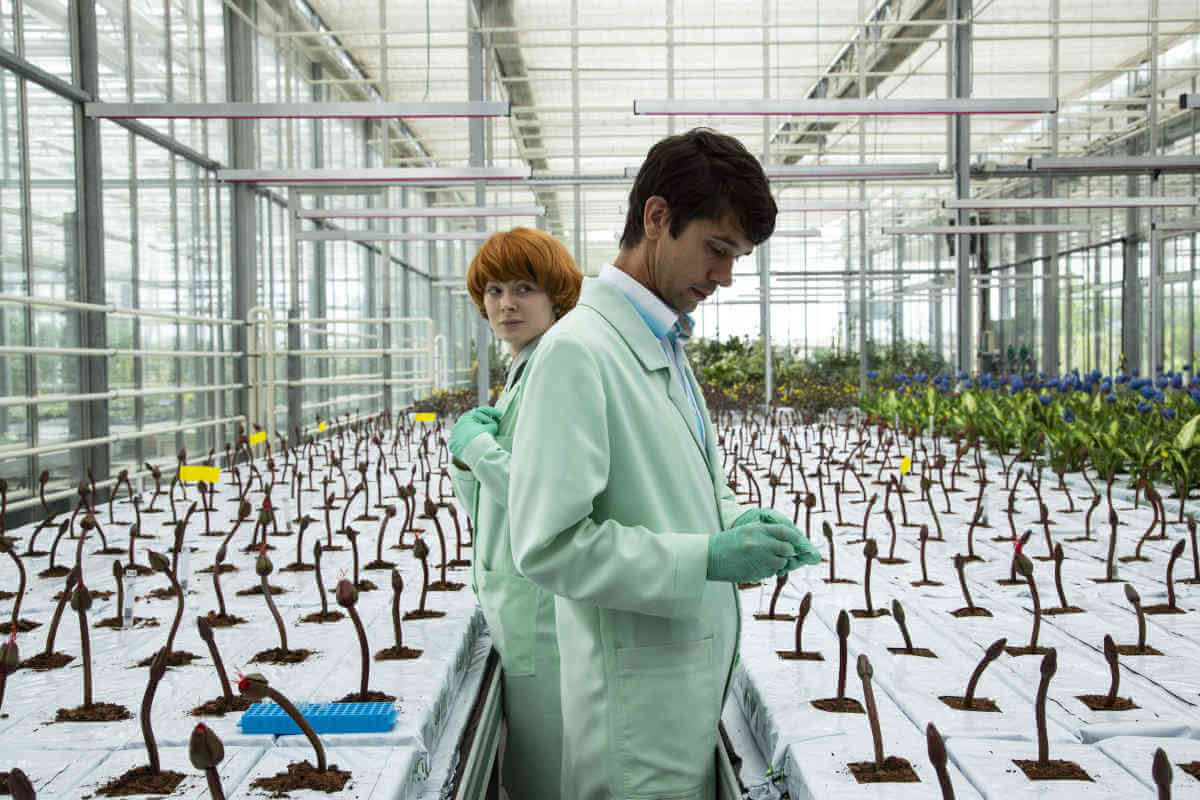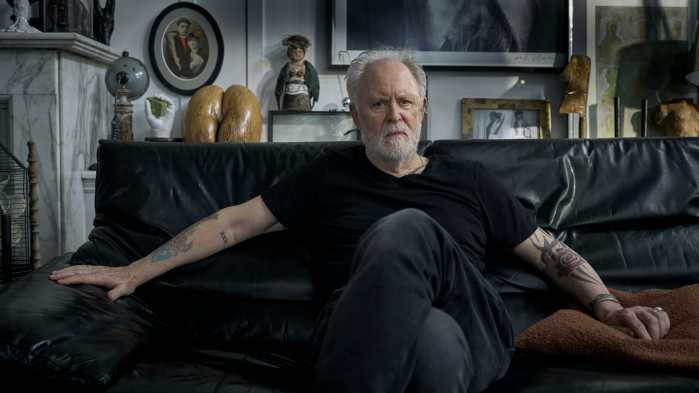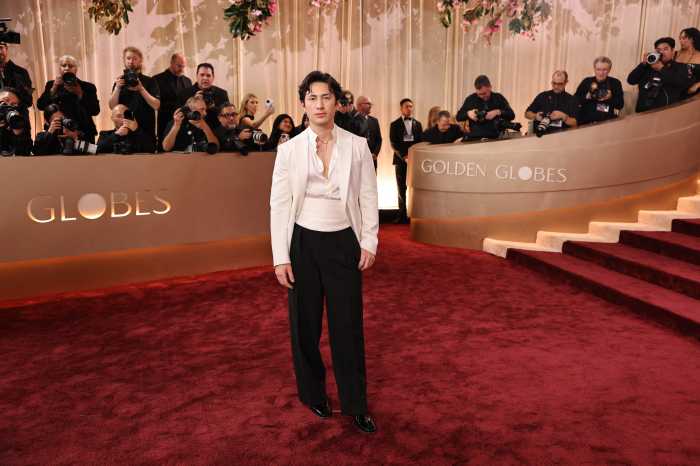Austrian director Jessica Hausner’s “Little Joe” had the potential to stun. Demonstrating her considerable talent as a stylist, it has a clear vision of its near-future world. However, that world ends at the limits of the film’s sets. The film feels cramped and cheap.
Hausner attempted to create a sci-fi nightmare with real but opaque connections to the problems of our present-day world. But although fists fly a few times in this film, nothing much lies at stake. “Little Joe” draws on the oft-revisited narratives of “Frankenstein” and “Invasion of the Body Snatchers” and films like “2001: A Space Odyssey,” Todd Haynes’ “Safe,” and David Cronenberg’s “They Came From Within.” Even so, it’s too withdrawn and polite to come close to the apocalyptic urgency of some of those influences.
“Little Joe” begins in a lab where scientists are hard at work, developing new species. Alice (Emily Beecham), Chris (out gay actor Ben Whishaw), and the suspicious Bella (Kerry Fox) are overseeing a crimson flower whose pollen has the ability to make people happy by producing the brain hormone Oxytocin when inhaled. Alice is separated from her son Joe’s (Kit Connor) father, and brings home one of the plants. But the plants, which Alice dubs “Little Joe” after her son, need constant affection to pump out pollen. They start to affect the behavior of Joe and his young girlfriend as well as the lab workers in troubling ways.
Fittingly for a lab working on plant development, its scientists wear pale green coats rather than the standard white. But the walls are blindingly beige. Hausner’s future has turned sterile. The film strives to be slicker than it actually is. It uses bright primary colors to contrast the lab’s blandness. Beecham was apparently cast in part for her blazing red hair! The camera tracks dow into greenhouses full of plants. The cinematography pays precise enough attention to color that some scenes show off three shades of green. Hausner uses camera movement to reveal telling detail, such as rolling it back to put Little Joe in the frame and imply that the plant is affecting a character’s behavior.
What is “Little Joe” really about? The dangers of psychiatric medication? Viruses? Addiction to recreational drugs? Social media? Genetically modified food? How about “all of the above, in a way that’s vague yet heavy-handed?” Within the film’s first few minutes, a scientist calls Little Joe an antidepressant. Before its full flowering it looks a bit like an opium poppy, and when Joe first inhales it its pollen blows into his nose like a burst of smoke. The scientists also talk about inserting a virus into a plant to create Little Joe. Apart from the social media allusion, all of the allegorical points are discussed in the film’s dialogue, yet it doesn’t really engage with any of them. And that’s probably for the better, because their implications are faintly insulting to people who benefit from antidepressants or cope with HIV infection. Behind it all lies an ambiguity about whether Little Joe’s effects are real at all.
Indeed, Hausner seems bored by the sci-fi aspects of her film. “Little Joe” builds a world that consists only of the lab, Alice’s apartment, and the outdoors near her husband’s house. A co-production among the UK, Austria, and Germany, it takes place in an unspecified Anglophone country. A score based on Teiji Ito’s percussive, tuneless music contributes to the never-neverland mood, combining free jazz, traditional Japanese music, and noise. Hausner’s sister Tanja designed the costumes to avoid place and time signifiers, instead incorporating deliberate absurdity and suggesting an indulgence in fantasy.
In the end, the plants may simply be an excuse for people to engage in behavior they’d otherwise keep under wraps. The film puts women in charge of the lab, where genetic engineering feels like a new form of motherhood. But little of this thematic meat is explored in any compelling way. Although “Little Joe” looks great, it’s all surface. It creates a beautiful world, but no matter how many ideas it throws up, they feel disconnected and do little to stir thoughtful reactions. The film could’ve benefited from getting high on a bit of Little Joe’s pollen itself.
LITTLE JOE | Directed by Jessica Hausner | Magnolia Pictures | Opens Dec. 6 | Quad Cinema, 34 W. 13th St.; quadcinema.com


































